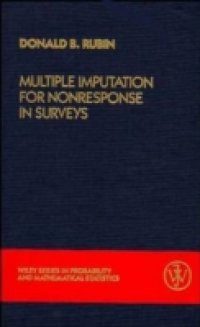Demonstrates how nonresponse in sample surveys and censuses can be handled by replacing each missing value with two or more multiple imputations. Clearly illustrates the advantages of modern computing to such handle surveys, and demonstrates the benefit of this statistical technique for researchers who must analyze them. Also presents the background for Bayesian and frequentist theory. After establishing that only standard complete-data methods are needed to analyze a multiply-imputed set, the text evaluates procedures in general circumstances, outlining specific procedures for creating imputations in both the ignorable and nonignorable cases. Examples and exercises reinforce ideas, and the interplay of Bayesian and frequentist ideas presents a unified picture of modern statistics.

